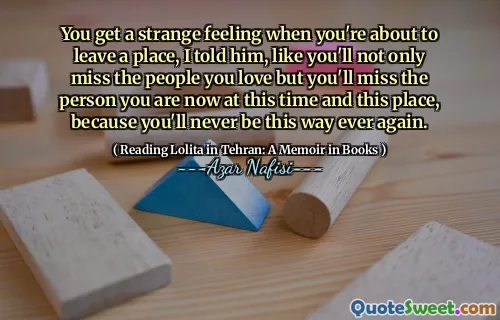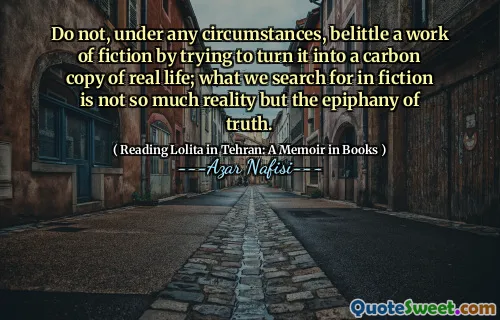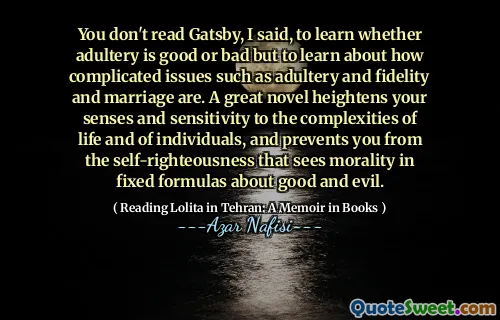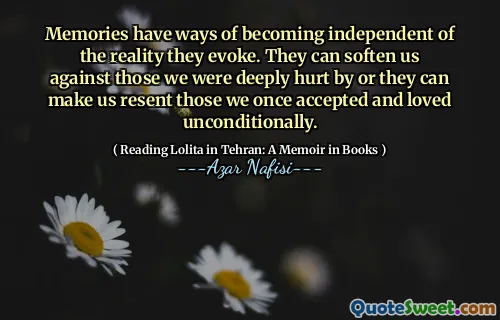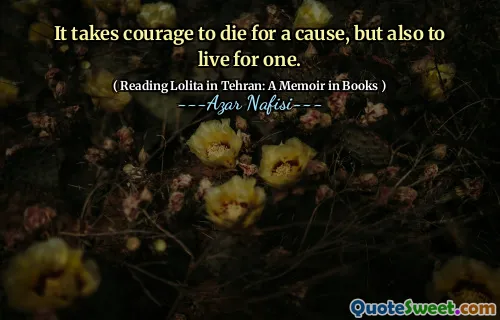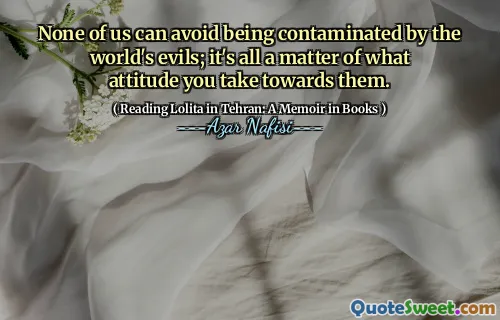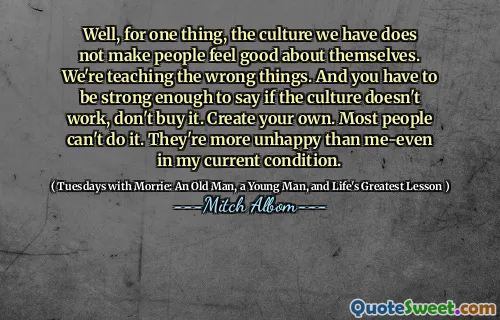
据说个人是政治性的。当然,这不是真的。争取政治权利的核心是保护自己,防止政治侵犯我们的个人生活。个人和政治是相互依存的,但不是同一件事。想象的领域是它们之间的桥梁,不断地将一个桥梁重新塑造。柏拉图的哲学家国王知道这一点,盲目审查员也知道,因此伊斯兰共和国的第一个任务是模糊个人与政治之间的界限和界限,从而破坏这两者也就不足为奇了。
(It is said that the personal is political. That is not true, of course. At the core of the fight for political rights is the desire to protect ourselves, to prevent the political from intruding on our individual lives. Personal and political are interdependent but not one and the same thing. The realm of imagination is a bridge between them, constantly refashioning one in terms of the other. Plato's philosopher-king knew this and so did the blind censor, so it was perhaps not surprising that the Islamic Republic's first task had been to blur the lines and boundaries between the personal and the political, thereby destroying both.)
📖 Azar Nafisi
阿扎尔·纳菲西(Azar Nafisi)在“在德黑兰阅读洛丽塔(Lolita)”中探讨了个人经验与政治现实之间的关系。她反对个人事务本质上是政治上的观念,他断言,争取政治权利的斗争从根本上旨在保护个人生命免受政治干预。尽管个人和政治领域相互影响,但它们是不同的实体,通过想象力互连,这重塑了我们对两者的理解。
纳菲西指出,专制政权对这些边界进行操纵,这强调了个人和政治界限的模糊会导致两者的侵蚀。这种策略是由柏拉图的哲学家国王和伊斯兰共和国审查员等历史人物使用的,它通过压制个人自由来控制个人。因此,她强调维持两者之间的分离以保护个人权利和自由的重要性。
